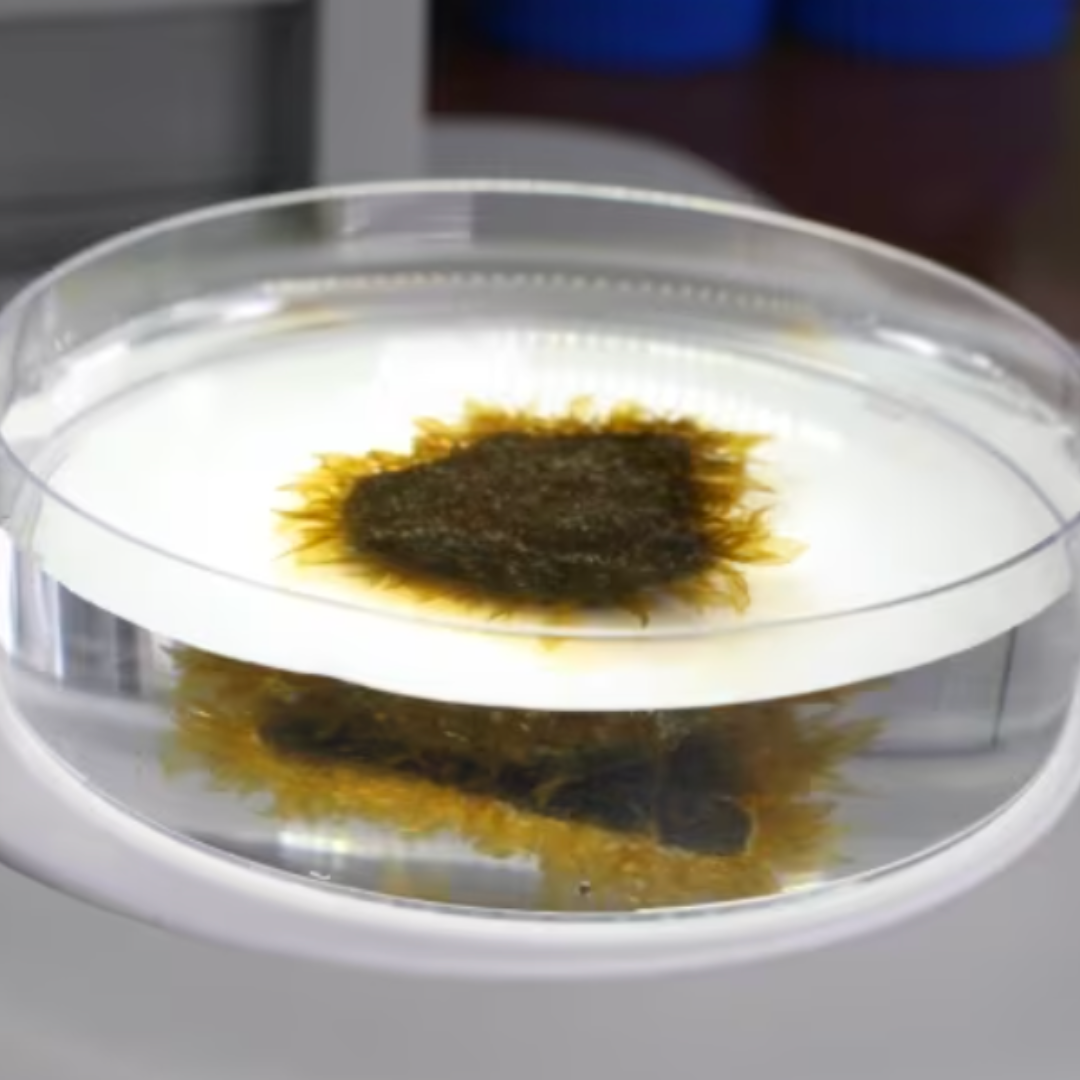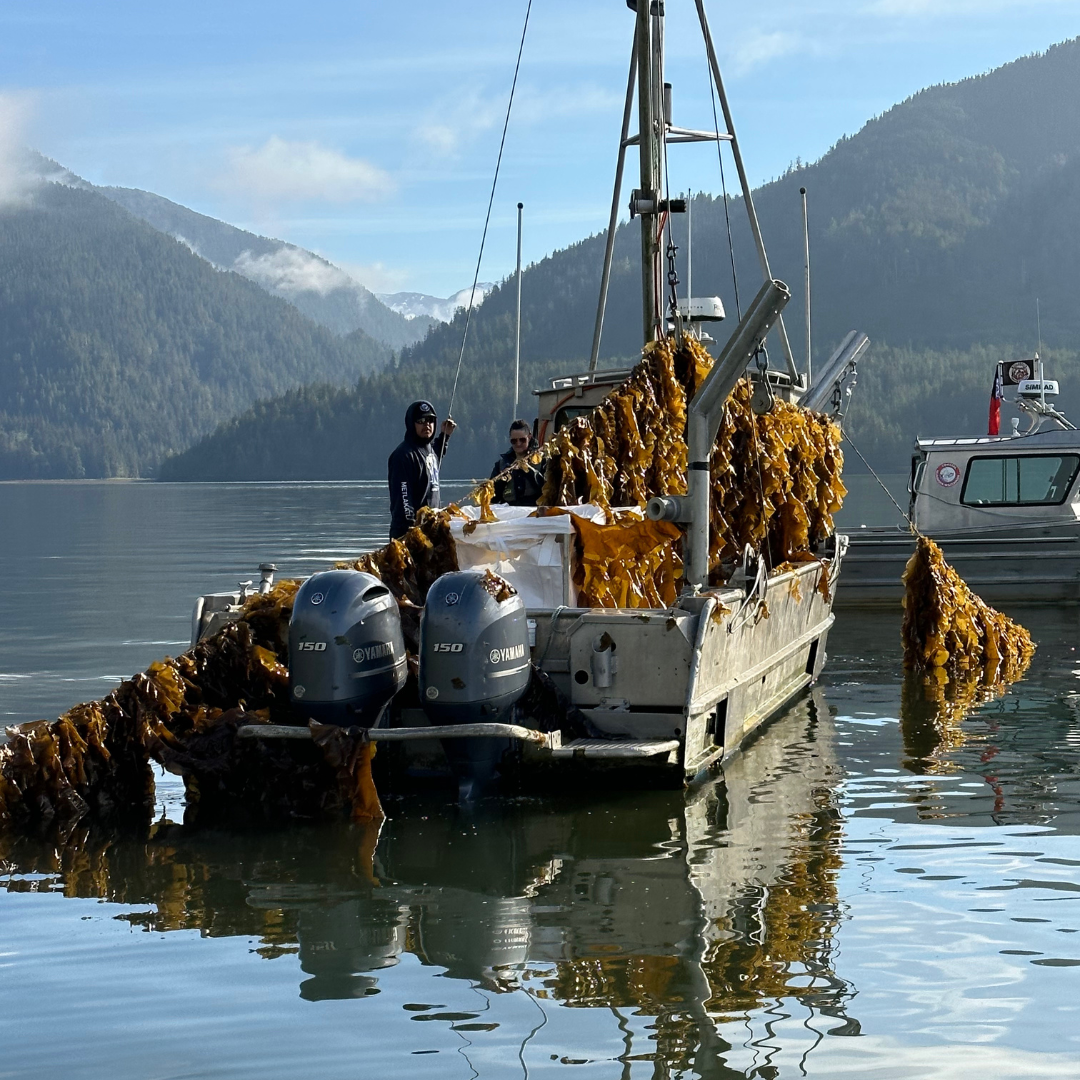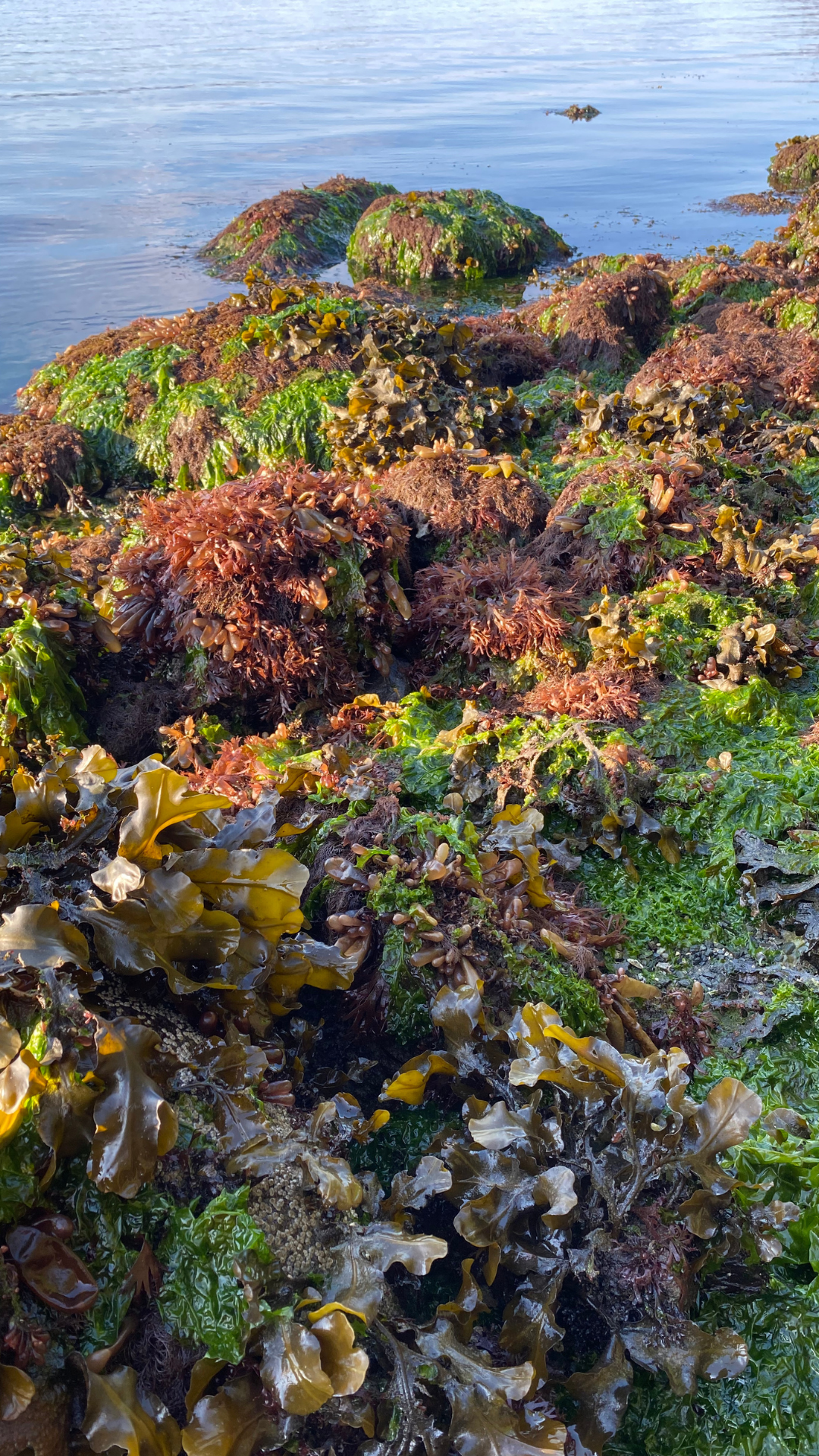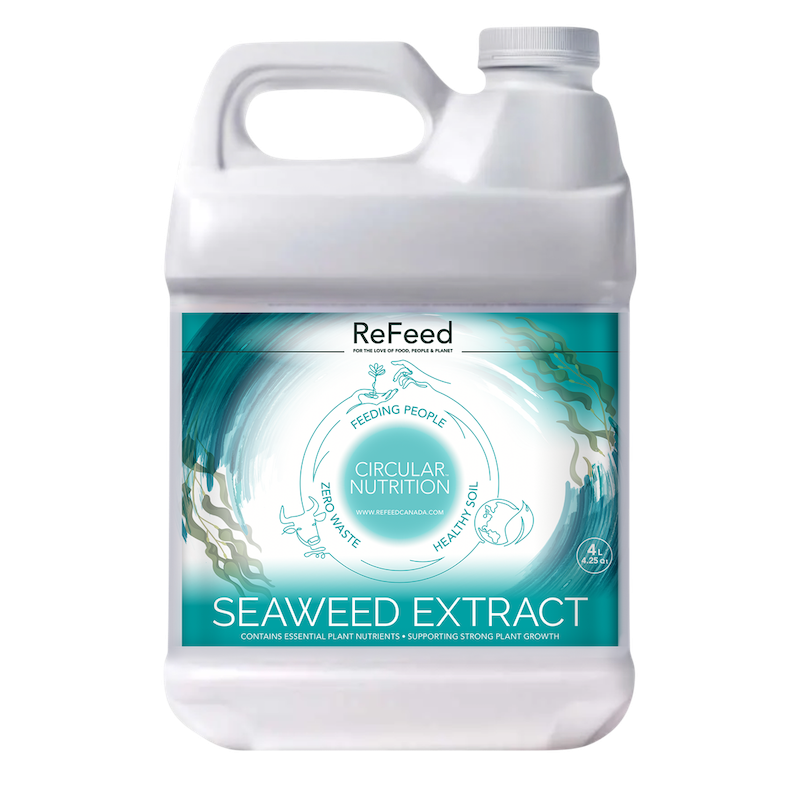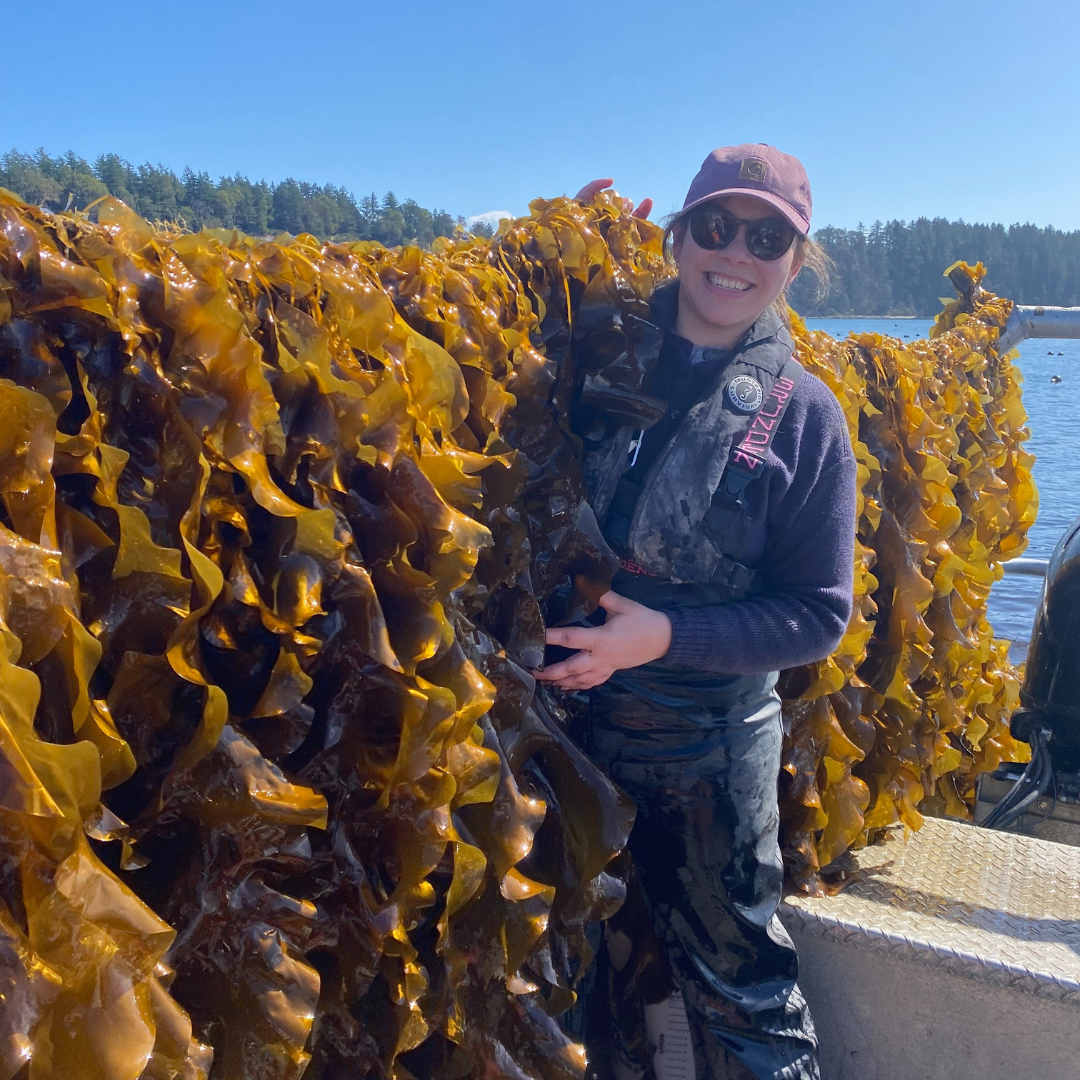At Cascadia Seaweed, we cultivate local species of seaweed and manufacture products for crop and cattle farmers.
Agriculture and Agri-Food Canada (AAFC) is taking action to create a healthier and more resilient future, while reducing emissions and addressing other climate-related challenges, using science and evidence-based decision making. By establishing an agreement with Cascadia Seaweed to systematically identify valuable compounds found in B.C. seaweeds — primarily to support the agricultural sector— AAFC is investing in food security for all Canadians.
“As pressure mounts over arable land and populations continue to rise, we must recognize opportunities within the Blue Economy to produce food and feed, while adapting to climate change,” says Bill Collins, Chair of Cascadia Seaweed. “Seaweed is a source of protein, carbs, fiber and minerals that everybody needs,” Collins continues.
“The fight against climate change is not only about reducing Canada's greenhouse gas emissions, but also helping farmers to innovate and adopt more sustainable farming practices. By investing in alternative farming methods such as the initiative by Cascadia Seaweed to explore seaweed as an alternative feedstock for cattle, we are supporting the development of sustainable feed that reduces methane emissions and moves the sector further into the clean economy for future generations,” says the Honourable Marie-Claude Bibeau, Minister of Agriculture and Agri-Food.
While seaweed grows in the ocean, it captures carbon and nitrogen, provides habitat, helps mitigate acidification, and produces oxygen. Farming seaweed can even help reestablish natural kelp forests. There are over 600 species of seaweed just in British Columbia, with identified uses from food, to feed, to industrial ingredients and medical and cosmetic applications.
AAFC is investing up to $533,475 under the Canadian Agricultural Partnership’s AgriScience Program, a federal, provincial, territorial initiative, to develop Canada’s capacity to study seaweed as a value-added cattle feed. The outcomes of this investment are expected to identify a systematic assessment of compounds within specific seaweeds to improve animal health, increase feed conversion, and reduce enteric methane emissions produced by ruminants (cows, sheep and goats). This research presents an exciting alternative for animal producers to boost productivity and reduce emissions, as there is a global need to diversify feedstock production with climate-resilient crops. The agriculture industry is also responsible for 24% of Canada's total methane emissions, therefore this research could enable policy measures which support the government's pledge, made late last year, to slash methane emissions to 30% below 2020 levels by 2030.
Cascadia Seaweed has demonstrated its ability to cultivate seaweed at scale, which will be needed to diversify feed supply for the over 4 million beef cattle in Canada. Establishing a scientific process to identify the compounds in seaweeds for cattle feed, may uncover valuable constituents for other purposes. By investigating the range of uses of a regenerative, ocean-cultivated crop supports the mandates of multiple Ministries who share a commitment to build a cleaner future for all Canadians.
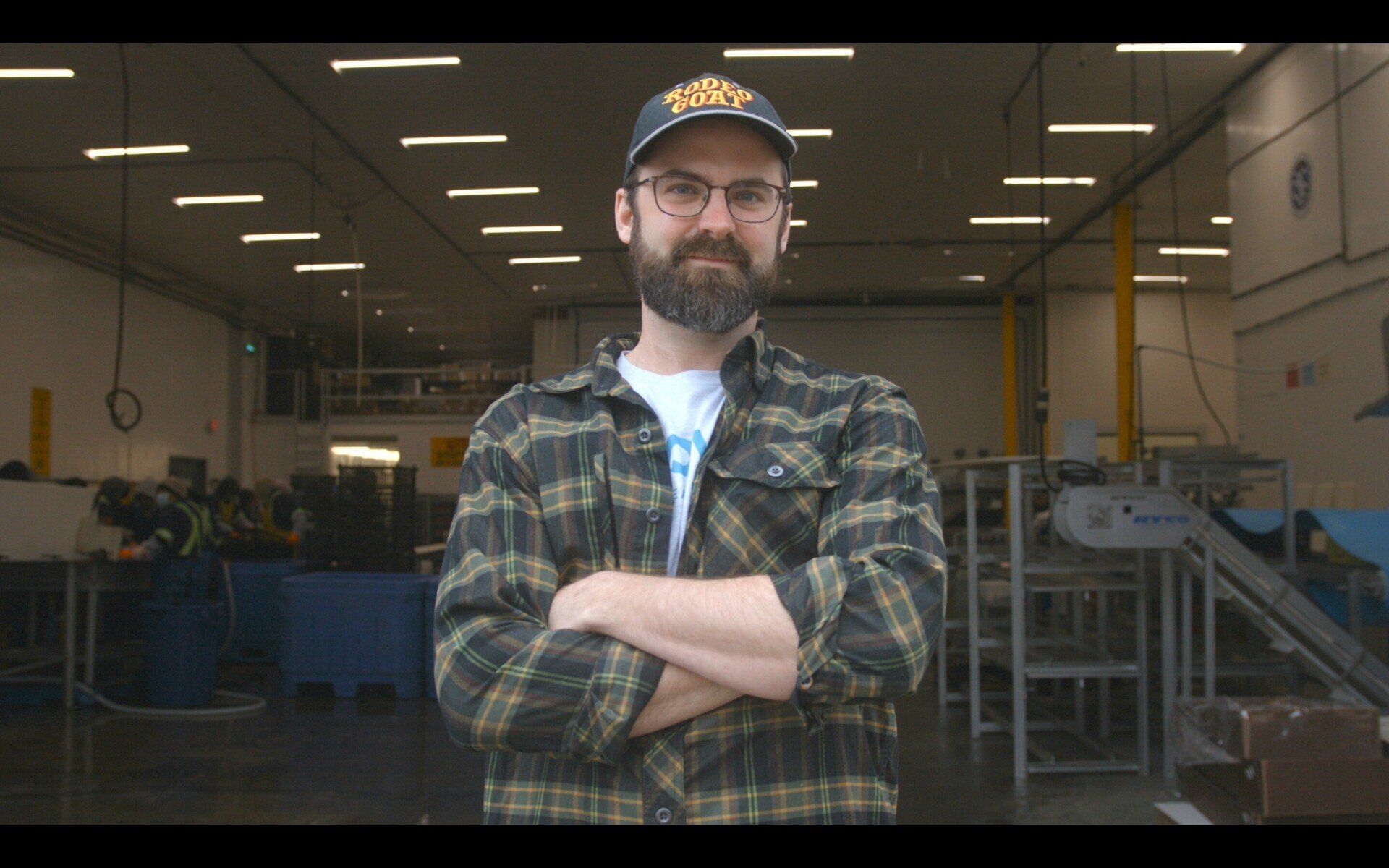
Dr. Spencer Serin, Principal Investigator of the Agriscience project at Cascadia Seaweed, pictured here at Hub City Fisheries in Nanaimo with seaweed being processed in the background.
Photographer: Andrew Candell
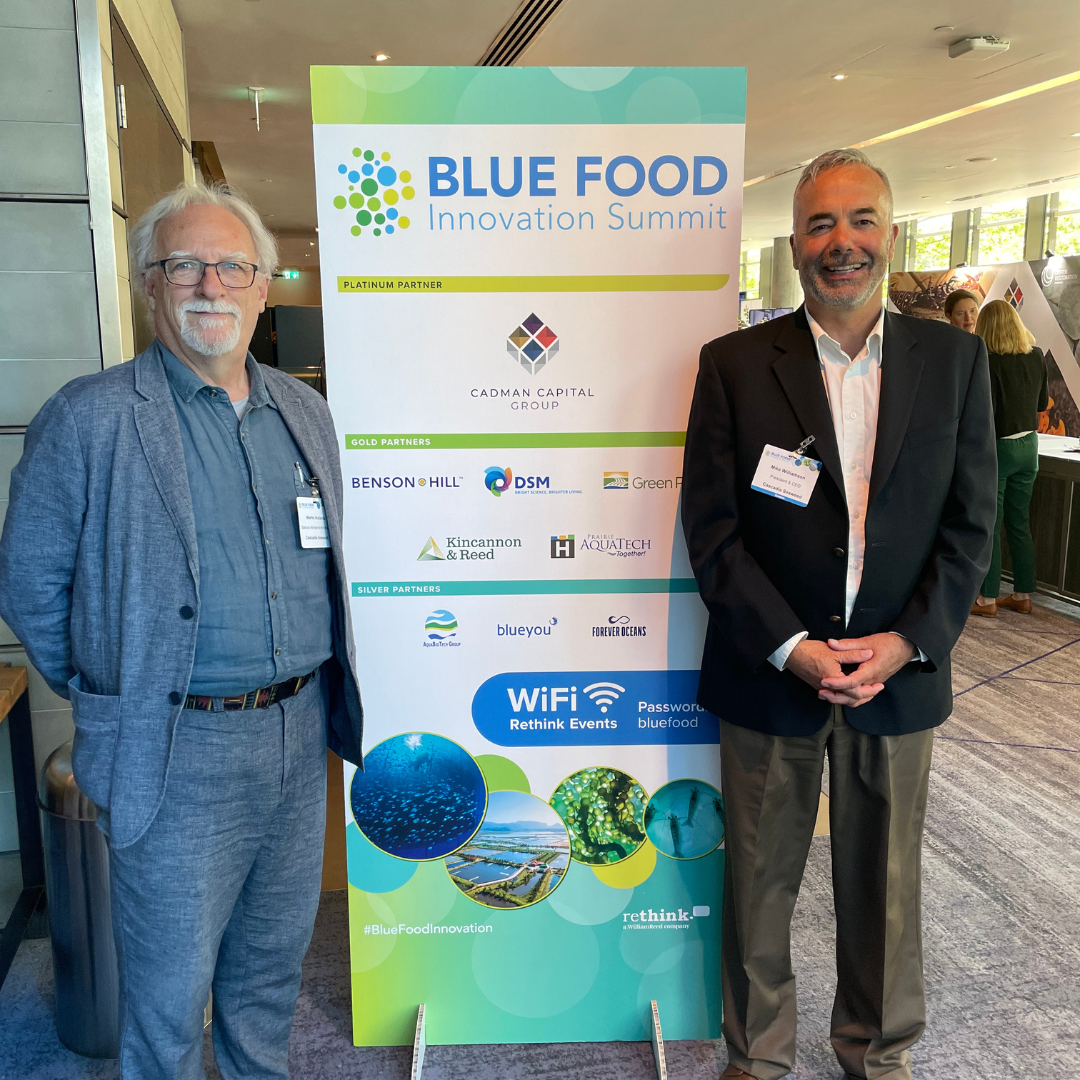
C - 9774 Third Street Sidney British Columbia V8L 3A4
Email: info@cascadiaseaweed.com
Phone: 1-778-351-4484

9774 - C Third Street Sidney British Columbia V8L 3A4
Email: info@cascadiaseaweed.com
Phone: 1-778-351-4484

